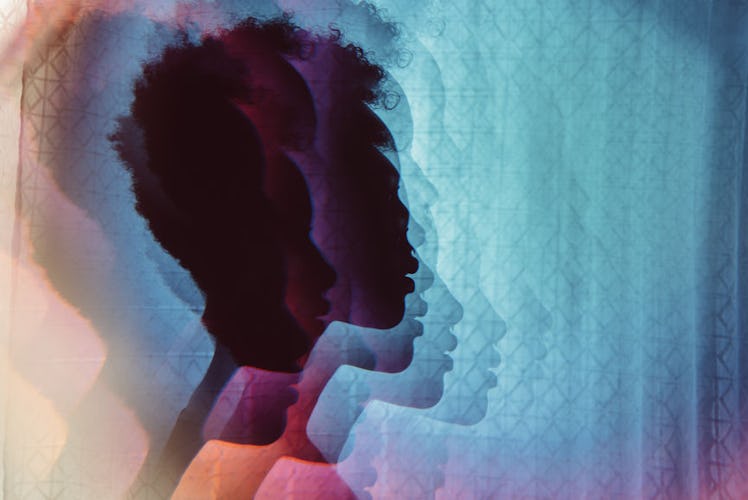
If Your Headaches Are Making You Dizzy, Here's What Could Be Happening In Your Body
If you deal with headaches or migraines, then you know that, along with being super painful and uncomfortable, they're often accompanied by legitimately weird symptoms. Lack of focus, weird tastes in your mouth, or being totally fatigued are just a few examples. But headaches can also make you dizzy, too, even when you aren't feeling any pain in your head. And yes, that can be pretty alarming, or even cause some anxiety when you aren't sure what exactly is going on. Trust me, I've been there: During one particularly bad migraine, I not only felt dizzy, but I was also seeing spots everywhere, and after a full-blown panic attack, I brought myself to the ER to see what was going on.
But listen, if you, too, get a collection of rather bizarre symptoms with your headaches, then there's a real possibility that what you're experiencing is a type of migraine (and yes, there's a difference between headaches and migraines). Part of the process of dealing with them is simply figuring out what kind of migraines you have, and what might cause them for you. This way, you can start recognizing triggers and warning signs, and with the help of a pro, you can figure out the best ways to treat them.
As for the dizziness specifically, according to Medical News Today, this symptom could be a sign of a vestibular migraine.
Like most migraines, the causes of vestibular migraines are somewhat unclear, though Medical News Today notes that your nerves, blood vessels, certain chemicals in the brain, and even your inner ear all play a role and are temporarily affected when the pain strikes, hence the dizziness. The pain itself, the outlet says, can be triggered by a whole host of things, including stress, lack of sleep, or even a particular snack you ate. But again, these triggers are often extremely unique to the individual, which is why it's so important to get your symptoms checked out by a doctor ASAP.
Interestingly enough, according to Dr. Vanessa Rothholtz, a board-certified otolaryngologist-head and neck surgeon, when it comes to vestibular migraines, the dizziness or vertigo they can cause sometimes doesn't actually accompany the headache itself. In other words, your head could feel totally fine, but your sense of balance might be a whole other story. "It can worsen with eye strain (while watching a movie with fast-moving scenes or while scrolling on a computer screen)," Rottholtz tells Elite Daily. "The dizziness is oftentimes described a a sense of being on a boat, but can also be a true spinning type of vertigo." Freaky, right?
When it comes to treating vestibular migraines, Dr. Rothholtz says certain diet and lifestyle changes can be helpful.
However, she adds, depending on your circumstances, your doctor may prescribe you medication for your migraines, or they may even refer you to a neurologist for further testing.
Keeping a headache diary can also be a great strategy for tracking your symptoms and figuring out what your migraine triggers are, according to Amy Eicher, a coach, speaker, and author, who used to worked at a vestibular migraine clinic. By keeping tabs on what causes your migraines, she tells Elite Daily, this may help you figure out what to avoid (whether it's stress, certain foods, or even specific environments) and thus reduce how frequently they happen.
Eicher also suggests meditation as a way to cope with vestibular migraines, as the practice's focus on breathing can help you manage any anxiety or dizziness that the physical pain may bring.
And of course, I can tell you from experience, having a good, supportive medical team that's up-to-date on migraine treatments that can be tailored to your unique case is the best form of help you can get in this situation. I won't lie, y'all: Any kind of migraine can be the pits, but there is help out there — I promise.